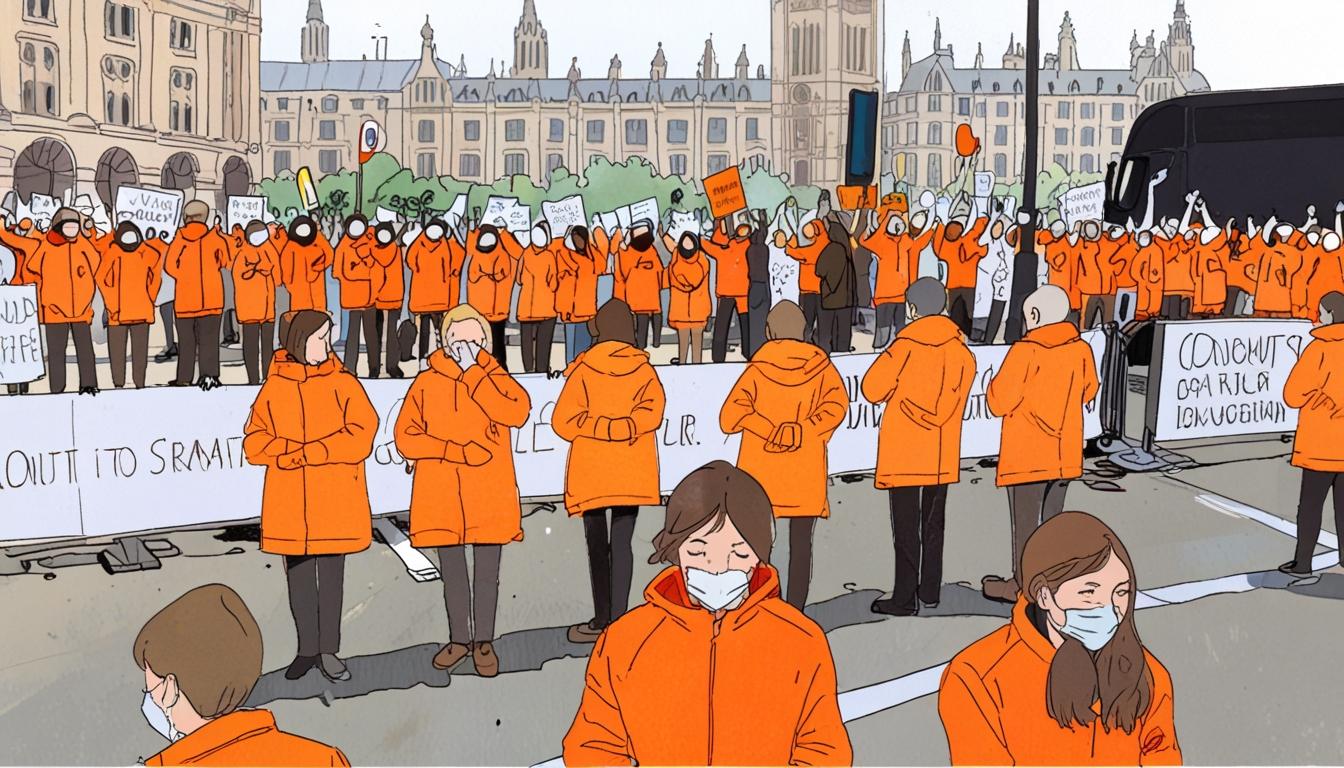On Saturday, over 500 supporters of the climate action group Just Stop Oil (JSO) gathered in central London to mark the end of their campaign of direct action. Wearing their signature orange jackets, protesters marched through the city, staging small road blockades around Parliament Square. The day’s events saw tensions rise when a driver in a white minivan attempted to drive forward into the protesters but was stopped by police.
The campaign, which has lasted over three years, has been characterised by a range of highly visible and creative disruptions. JSO activists have engaged in slow marches and road blockades, disrupted major sporting events, scaled gantries over motorways, and even taken chisels to the glass casing of the Magna Carta. One of their more notable actions involved throwing soup at Vincent Van Gogh’s famous Sunflowers painting.
JSO supporters are reflecting on the tangible impact their protests have had. The group can point to government policy shifts, particularly the decision not to grant new licences for oil and gas exploration. However, the campaign acknowledges that climate action remains critical, especially in light of recent government decisions. For instance, permission was granted in 2023 to develop the Rosebank oil field in the North Sea—Britain’s largest untapped oil source—a development later declared illegal in January. Despite this, the Norwegian state oil company Equinor, which backs Rosebank, continues to advocate for drilling.
David, one of the participants at the event, told Socialist Worker, “The Labour government has been disappointing so far. The crucial decision will be Rosebank. It’s still on the edge. If they try to proceed there will need to be more protests. JSO might need to experience a resurrection.”
Blod, another supporter, emphasised the significance of peaceful protest, saying, “I think it’s really important to acknowledge what has been achieved through peaceful protest. It’s easy to think civil disobedience is a new thing. But we are part of a long tradition and heritage of peaceful protest.” She went on to express uncertainty about the future of activism: “I don’t know what is next. The criminalisation of protest seems designed to push civil disobedience in a more disruptive direction. And then fewer people can take part. I am interested in more local assemblies and I think the Citizen’s Arrest Network is important. I admire and respect JSO’s decision to mark what has been achieved but it’s always sad when something ends.”
Among those who travelled from outside London was Polly, who came from Ipswich to join the demonstration. She told Socialist Worker, “The world is in a bad place and getting worse with people like Donald Trump and Nigel Farage. The far right will attack everyone’s right to protest. We have to protest in any way we can and take to the streets, whether it’s about the planet, racism, trans+ rights or cuts. All these are an attack on our liberties. Keir Starmer has made some verbal concessions. But is known to go back on his word. We can’t trust Starmer. There will be something else—but I don’t know what.”
The group remains committed to supporting its members who face legal consequences for their activism. Currently, 11 JSO supporters are in prison for disruptive actions against the fossil fuel industry, with some having been incarcerated for years simply for planning protests.
At the culmination of the march near the Royal Courts of Justice, Tim Crosland from the Defend Our Juries campaign addressed the crowd. He acknowledged JSO's influence on government policy, stating, “Just Stop Oil set out to stop new oil and gas licences and it succeeded. There is no real doubt about that causation.” He also highlighted the harsh response from the state: “And it has revealed the violence of the state, with these sham trials we have seen, the wild disproportionate sentences.”
Crosland cautioned against framing the campaign’s achievements too simplistically given the ongoing global challenges, noting, “Global emissions are rising. The far right and fascism is rising. Horrific wars and genocide for land and resources, global catastrophe appears locked in. To talk about succeeding in that context doesn’t feel completely right. But it’s just as wrong to say that Just Stop Oil has failed.” He concluded with optimism for future activism: “Thank you for clearing the path for what comes next, because it’s gonna be good.”
The end of the Just Stop Oil direct action campaign marks a significant moment in recent UK climate activism, with prominent impacts on government policy and ongoing debates about the future strategies needed to address the climate crisis.
Source: Noah Wire Services
